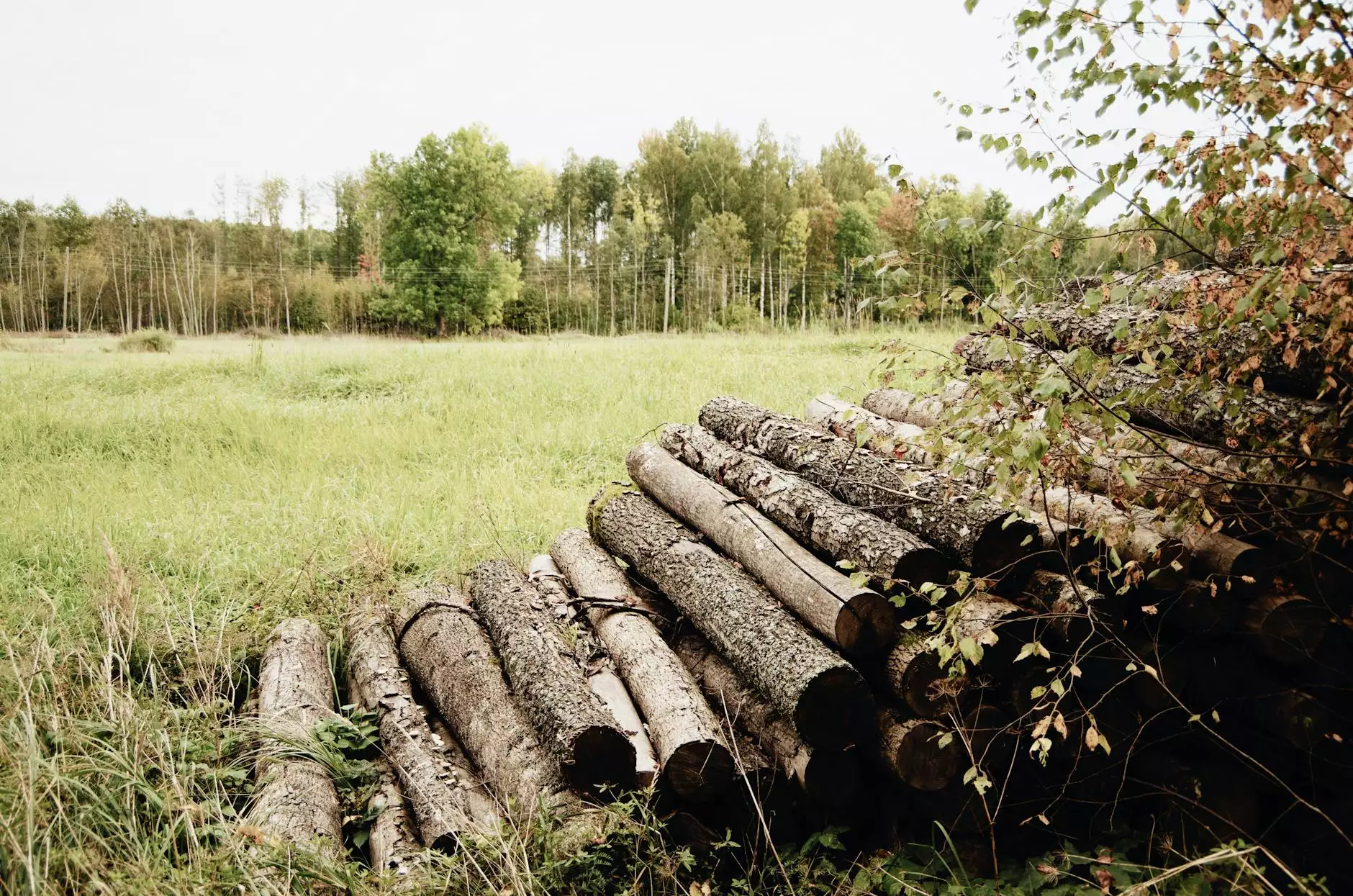Ultimate Guide to Purchase Fire Wood: Enhance Your Business with Quality Timber

Firewood is more than just fuel for your fireplace; it represents a vital component of many businesses and home heating solutions. In today's environmentally conscious world, customers are more eager than ever to seek sustainable and quality sources for their heating needs. If you're considering a venture into the wood supply market or simply looking to enhance your business's offerings, learning about how to successfully purchase fire wood is essential.
The Importance of Quality Firewood
When you decide to purchase fire wood, the quality of the wood you choose will significantly impact the efficiency and satisfaction of your customers. Quality firewood provides better heat output, burns cleaner, and minimizes the risks associated with chimney fires. Here are some key factors to consider:
- Moisture Content: Ideally, firewood should have a moisture content below 20%. High moisture content results in poor combustion, producing excessive smoke and creosote.
- Type of Wood: Hardwoods like oak and maple are dense and provide long-lasting heat, while softwoods like pine ignite quickly but burn faster.
- Seasoning: Fully seasoned firewood—that is, wood that has been dried for at least six months—will burn more efficiently compared to freshly cut logs.
Understanding the Types of Firewood
Before you make your purchase, it's crucial to understand the different types of firewood available. Each type of wood has specific characteristics, pricing, and preferred uses.
1. Hardwoods
Hardwoods are typically denser, making them a popular choice for heating:
- Oak: Known for its long, steady burn and high heat output.
- Maple: Burns hot and has a pleasant aroma, ideal for fireplaces.
- Birch: Easy to light and provides a pleasant fragrance.
2. Softwoods
Softwoods are generally easier to ignite but burn faster:
- Pine: Lights quickly and is great for kindling but produces more creosote.
- Fir: Similar to pine but burns more slowly and gives a decent heat output.
- Cedar: Pleasant fragrance and great for outdoor fire pits.
Best Practices for Purchasing Firewood
To ensure you’re making a wise investment when you purchase fire wood, consider the following best practices:
1. Buy Locally
Purchasing wood from local suppliers like Stary Timbers keeps logistics simple and supports your local economy. Local suppliers often provide varieties that are best suited to your region's climate.
2. Look for Certifications
When purchasing firewood, especially in larger quantities, look for certified suppliers. Certifications signify quality and sustainable practices, ensuring you’re contributing positively to the environment.
3. Inspect Your Wood
While inspecting wood, ensure the logs appear dry and are free from mold and pests. The bark should be intact, and splitting logs can help reveal moisture content. Always sample a few pieces before making a large purchase.
4. Ask About Delivery Services
If you're purchasing in bulk, inquire if the supplier offers delivery services. This can save you significant time and effort, allowing you to focus on running your business. Stary Timbers offers convenient delivery options for its customers.
Pricing Factors for Firewood
The cost of firewood can vary significantly based on several factors:
- Type of Wood: Hardwoods generally cost more than softwoods due to higher demand.
- Seasonality: Prices can fluctuate during peak seasons like winter. Buying ahead of time can save costs.
- Quantity: Bulk purchases may come at a discounted rate.
Long-Term Storage of Firewood
After you purchase fire wood, proper storage is crucial to maintain its quality:
- Dryness: Keep firewood covered to ensure it remains dry but allow airflow to prevent mold growth.
- Elevation: Store wood off the ground to prevent moisture absorption from the soil.
- Spacing: Stack wood in a way that allows for air circulation between logs.
Environmental Impact of Firewood Usage
Incorporating wood fuel into your energy strategy can bring environmental benefits, especially when sourced sustainably. Here are several advantages:
- Carbon Neutral: When managed correctly, wood is considered a renewable energy source that can be carbon-neutral.
- Biomass Energy: Utilizing wood for energy supports the reduction of fossil fuel dependency.
- Local Economy Support: Purchasing firewood from local suppliers contributes to regional economic growth.
Conclusion: Make an Informed Decision on Firewood Purchases
The journey of choosing and purchasing fire wood does not have to be overwhelming. By understanding the varieties of wood, assessing quality, and knowing where to buy from reputable sources, you can enhance both your business offerings and customer satisfaction. Stary Timbers is committed to providing top-notch timber solutions that align with your heating needs, enabling you to thrive in an eco-friendly manner.
For more information about high-quality firewood and other timber solutions, visit Stary Timbers today!



